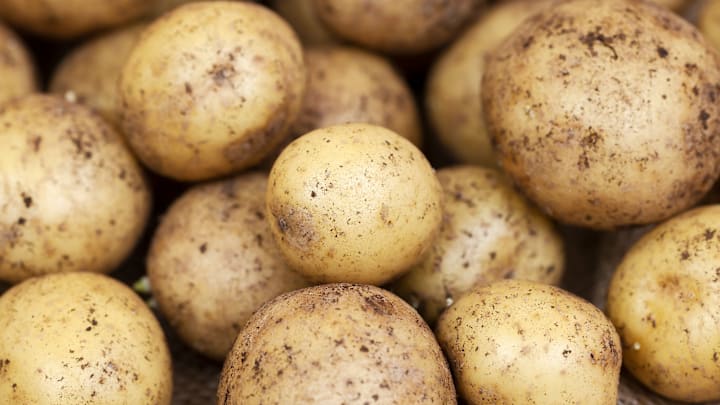Although potatoes have surprising uses, such as removing rust and telling time, most people just eat them. According to the Alliance for Potato Research & Education, an industry group, the tuber is one of the most popular vegetables, with over 1 billion people eating it worldwide. And no matter what you plan to do with the vegetables—whether it’s making mashed potatoes or French fries—you must always wash them correctly beforehand.
Martha Stewart spoke to Catt Fields White, chef and founder of San Diego Markets and Farmers Market Pros, about the best way to wash potatoes. The first step to washing spuds is to let them soak in cool water. This allows the crusty dirt to loosen up, making its removal easier. You can take the potatoes out of the water and scrub them once you notice the dirt has dislodged. You’ll need a clean brush or scrubbing gloves designated for washing vegetables to ensure you’re properly cleaning each tuber (but note that the skin on waxier potatoes tends to tear or bruise easily, so it’s best to use your hands instead of a brush to clean those). The last step is to rinse the potatoes under running water.
If you think you can skip washing potatoes because you’ll eventually peel them, think again. If you touch their dirty exterior, that grime can then get onto your hands and transfer back onto the potato as you hold it to peel it—this is why it’s best to wash them even if you plan to remove their skin. To avoid browning after peeling, simply place the potato in water mixed with lemon juice.
Potatoes should usually be cooked immediately after washing because they can grow bacteria when stored wet. However, according to Fields White, it’s typically OK to wash them up to 24 hours before cooking (just be sure to dry them before putting them away). Keep in mind that potatoes should never be stored in the fridge—it’s best to put the tubers in a container and place them in a place that is dry, cool, dark, and airy.
You may be familiar with commercial produce washes that are specifically meant for cleaning vegetables, but the FDA recommends against using these products. This is because the residue of these vegetable washes isn’t guaranteed to be safe, and scientists haven’t tested if, or how well, they work.
Read More About Cooking:
